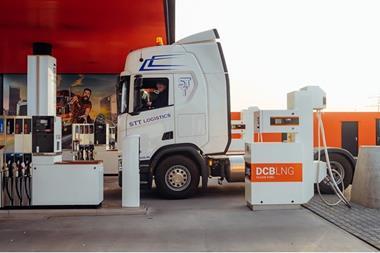Another month brings another set of ‘relaxed’ rules telling us how we’re all now supposed to interact in public, along with the very welcome news that the hospitality sector – or at least whatever is left of it – is allowed to open after three months of shutdown.
However, that doesn’t mean that things are about to go back to ‘normal’ – forget rules and look at how the public are acting. There appears to be two distinct groups: on the one hand, we have those (predominantly young and restless) who barely conformed to even the strictest part of lockdown and will certainly take full advantage of their re-discovered freedom to go out. On the other hand there are those (predominantly older and perhaps feeling themselves more vulnerable) who have become quite used to not going out unless they absolutely must.
There are some indications that the latter group will be extremely slow to resume previous habits. They’ve discovered that they enjoy doing almost everything they need from the comfort of their home. The only bright spot here for the petrol retailing industry is that this group is more likely to avoid public transport if they do go out, and will use their cars!
We can’t yet ignore the fact that the overall economic outlook in the UK remains bleak. The Job Retention Scheme is currently scheduled to last until the end of October, but with employers ‘sharing the burden’ from August. A lot could happen between now and then, but there’s a chance that some employers (particularly in the retail, hospitality and travel sectors) simply won’t have the money to make up the difference, let alone bring staff back fully from November.
Throughout the last few months one retail or hospitality chain after another has either put itself into administration or has publicly started asking its landlords for rent reductions – something that we’ve seen time after time on the High Street in the last few years. But that just pushes their problems onto their landlords. As this is being written, one of the largest owners of shopping malls in the country is itself warning that it needs to ‘re-structure’ its finances or shut down some or all of its operations.
Vanishing demand
This problem isn’t confined to the retail or leisure industries. Many parts of the manufacturing industry have also effectively stopped in the last few months, partly as a result of lockdown regulations, but also because demand for their products both here and abroad has simply vanished. And as far as the travel industry is concerned –well ask anyone living under the flight path of a major airport when they were last disturbed by aircraft noise and you’ll get the picture. These industries don’t just face issues local to the UK, but are also at the mercy of events abroad. Few of them are expecting demand for their products and services to go back to anything like pre-Covid-19 levels for the next few years. Inevitably if manufacturing, and retail all face medium-term problems then those service industries which support them (training, finance, IT, marketing and the like) will also suffer.
Glaring gaps
The reality is that in the last three or four months the UK has seen a complete change in day-to-day life directly due to Covid 19. As we come out of lockdown we’ll see some glaring gaps in our urban landscape where shops, pubs, restaurants and theatres simply won’t re-open without firm promises (and delivery) of government subsidies. That’s just the short term. By the autumn, the owners of those businesses that are still operating will be gauging demand for the next 12 months and making their staffing and spending plans accordingly.
Unfortunately the damage to the global economy is worse than anything since World War II; certainly worse than that of the 2008 banking/financial crisis – and the after-effects of that one were still being felt here 10 years after the event. In the medium to longer term, the only way we’re going to avoid seeing UK unemployment figures going way above the 2-3 million that caused widespread social unrest back in the 1980s is that the UK government (along with those of most of the ‘developed’ world) is going to have to keep pumping money into the economy for a lot longer than just to the end of October this year. They’ll simply have to keep printing money – and that can bring its own risks in the long run – for at least the next few years.
For the latest detailed advice on matters such as payroll, VAT and other financial assistance related to Covid-19, please contact us through our website, or via Facebook or LinkedIn and we’ll be glad to help.
EKW Group provides accounting and payroll solutions for independent petroleum and convenience dealers, including fully outsourced accounting options. 01942 816512 ekwgroup.co.uk

































No comments yet